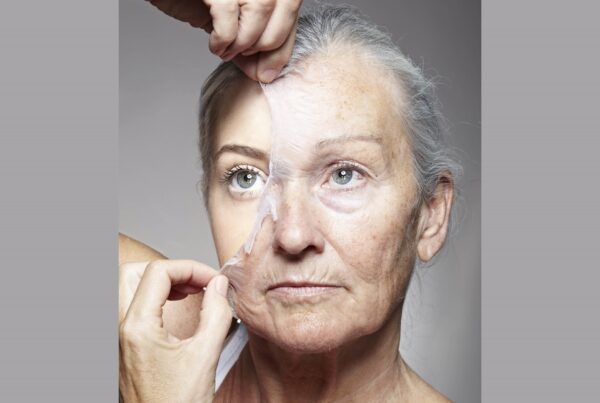The benefits of Zinc
Zinc plays an important role in numerous biochemical pathways including skin, CNS, organ systems, immune and skeletal and reproductive systems. Zinc deficiency can result in dysfunction of both humoral and cell-mediated immunity leading to illness, rundown feeling, poor concentration, stunted growth and poor wound healing. Following are some top benefits of zinc:
- Zinc improves immunity and reduces chance of colds and illnesses when taken for 5 months because it reduces mucus and bacteria from building up in nasal passage. Studies have found colds were shortened when taken within 24 hours of contracting a cold.
- Zinc is necessary for at least 70 enzymes – 5 of which are found in lymphocytes. Deficiency in zinc depresses T and B cell function.
- It supports antioxidants that may help fight cancer by reducing oxidative stress symptoms and supporting healthy cell division and encouraging damaged cells to commit suicide. Deficiency in zinc is linked to reduction in NK cells and maturation of T cells therefore causing dysfunctional inflammation and oxidative stress.
- It benefits hormonal health and fertility because it plays a role in all hormone production. Because of its impact on hormonal balance even the slightest deficiency can result in infertility and diabetes.
- It fights diabetes because it is a hormone regulator of insulin, the main hormone involved in regulation of blood sugars.
- It maintains heart health by supporting blood vessels. The thin layer of cells called the endothelium that lines the blood vessels relies on adequate levels of zinc. It supports healthy circulation as it is a natural remedy for high blood pressure and cholesterol levels from clogged arteries.
- It aids digestive problems and assists in nutrition and nutrient absorption because it is involved in the breakdown of carbs and protein synthesis so energy levels can be affected leading to adrenal or chronic fatigue.
- It increases fertility especially regulating serum testerone levels in men. It will also impact womens fertility as adequate levels of zinc is required during the growth process of the egg.
- Supports liver health as it assists in cleansing and reduce inflammation in the liver and aids with nutrient absorption and waste elimination
- Helps with muscle growth and repair as it plays an important role in cell division and growth as well as assisting in with the release of testerone and other growth hormones which build healthy muscle mass.
- Skin – It has anti inflammatory properties so important for skin healing. It is found in all body tissue and needed for healthy cell division. It acts like an antioxidant in the body, fighting free radical damage and slows ageing process. It is a vitamin C transporter. It is useful in treating acne due to wound healing and anti-inflammatory properties. Studies have shown that acne lesions reduced from 100 percent to 15 % in 12 weeks of taking orally. Zinc oxide is often used in topical treatments because it has skin astringent properties preventing oil from building on surface and slowing down production. Topical zinc is also better at treating cuts and wounds due to its involvement in removal of necrotic tissue. Zinc can also help fillers be more effective.
- Zinc fights off depression-zinc containing neurons regulate the brain and body response to stress. A recent study found that patients receiving a zinc supplement in combination with antidepressants reduced symptoms significantly compared to just antidepressants on their own. Chronic fatigue suffers are found to also have much lower levels of zinc.
- Zinc in sunscreen- zinc is a mineral not soluble in water. It is one of the safest ingredients for protecting the skin and does not have toxic side effects like chemical sunscreens do.
- It targets two proteins that are involved with the degradation of collagen by interceding when collagen is exposed to UV and it activates DNA process allowing it to repair and self correct.
What destroys zinc
Cereals, the pill, anti-acids, blood pressure meds, antibiotics, HRT meds can all diminish zinc status. Severe stomach acid issues, leaky gut, alcoholism and chronic digestive problems all lead to zinc deficiency. Tests for zinc levels are best done first thing in the morning before breakfast as meals can affect readings. Supplements should not be taken on an empty stomach or with calcium or iron or exceed 40 mg per day. Do not take with legumes, nuts and grains. Recommended daily intake is Men: 14mg, Women 8mg, Pregnant or lactating 12 mg. Intake can be increased by eating lean red meat, dairy, seafood, oysters, dark chocolate, oatmeal. Vegetarians are often deficient in zinc.
Signs of zinc deficiency
Tests are available to determine zinc deficiency including hair, taste, urine and blood tests but most will only show if severe deficiency. Symptoms to look out for are: changes in appetite and loss of taste and smell, weight change, hair loss, digestive problems including diarrhoea, chronic fatigue, infertility, PMS or menopausal problems, low immunity, poor concentration, slow wound healing and nerve dysfunction. White spots under nails, rough skin and lines down abdomen are all pointers to lack of zinc.
Sources: Healthyfoodguide articles 2011, Zinc – tina viney APJ, immune intelligence seminar




